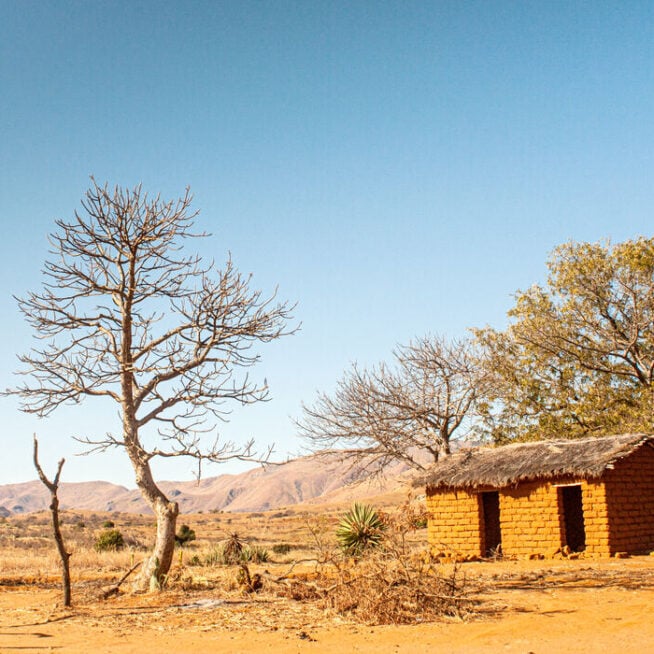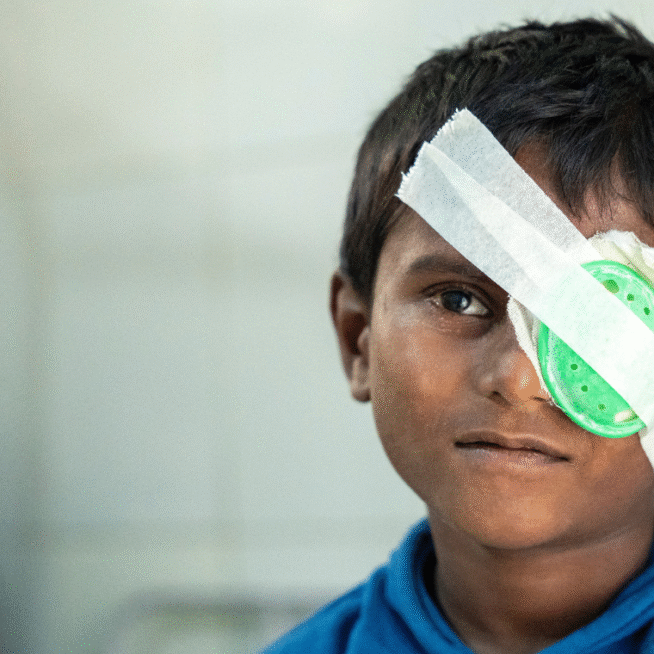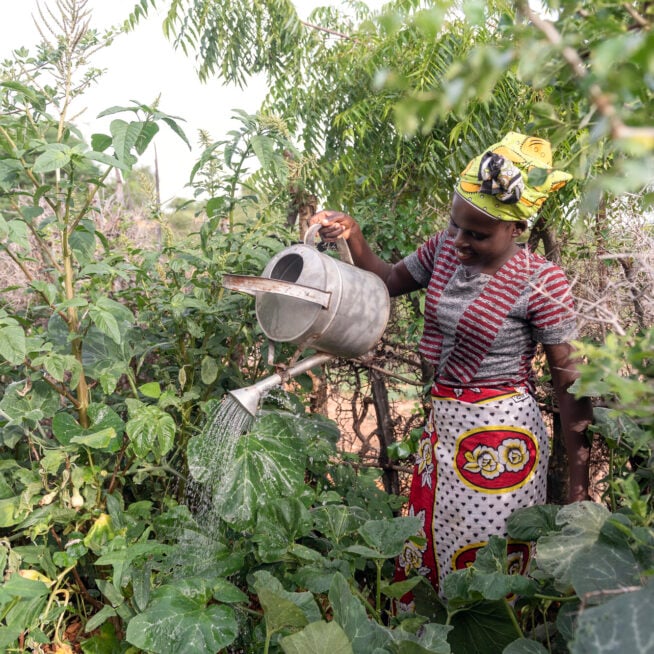Want to transform lives with us? Stay in touch and hear about our news, activities and appeals by email!
Ten days in Nepal: what we can learn from the example of our partners
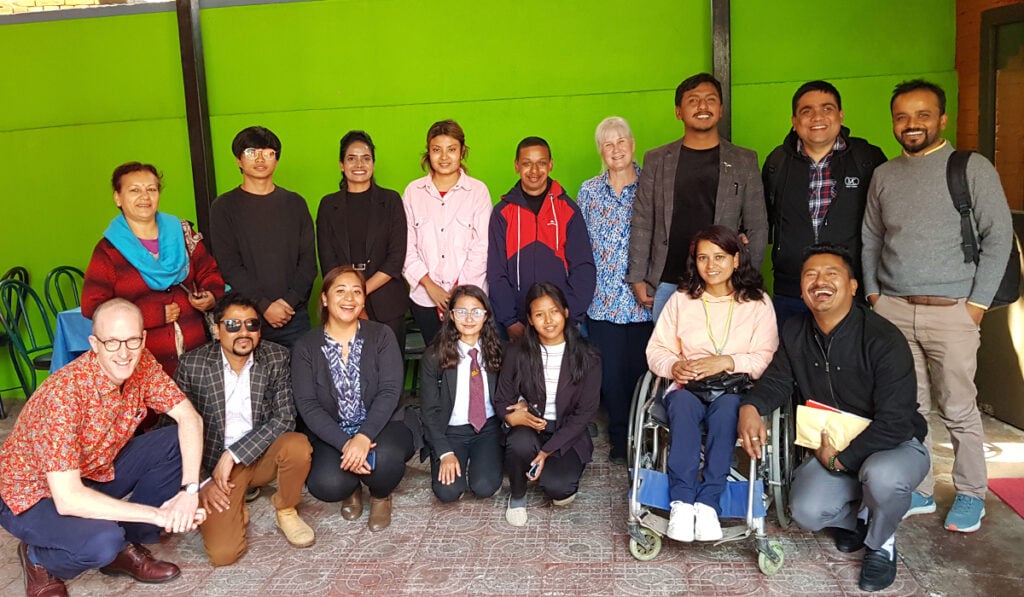
Last month, I spent ten days in Nepal, visiting CBM partner organisations and people with disabilities. It was an intensive trip, but always so good to learn more about the incredible work our partners are doing alongside people with disabilities to tackle injustice, combat stigma and make a tangible difference in the lives of so many.
There were many highlights to my time in Nepal, but as I reflect on the time I spent with our partners, I want to draw out three key areas of learning.
Long-term partnerships, based on mutual commitment and a focus on delivery, can have a huge impact on people’s lives.
Visiting our long-term partner Nepal Netra Jyoti Sangh (NNJS) was very revealing. They run an incredible network of eye programmes, including the hugely impressive eye hospitals in Biratnagar and Lahan.
CBM has been working with NNJS for around 40 years. This partnership has been hugely impactful, not only in the staggering number of people accessing eye and ear health services particularly the eastern region programme based at Biratnagar and Lahan, but also in the community programmes that have been built up. Each partner has brought specific strengths, along with a commitment to a compelling shared vision of a Nepal where eye health services are available and affordable to all.
What struck me was how this partner had gone from strength to strength, testing, innovating, evaluating and learning from new ideas and opportunities to make an even bigger difference. NNJS’s growing network of primary eye and ear health centres, and the fact that primary ear health services can effectively and relatively simply complement existing eye health work, underly the importance of robust partnerships and working towards systems change.
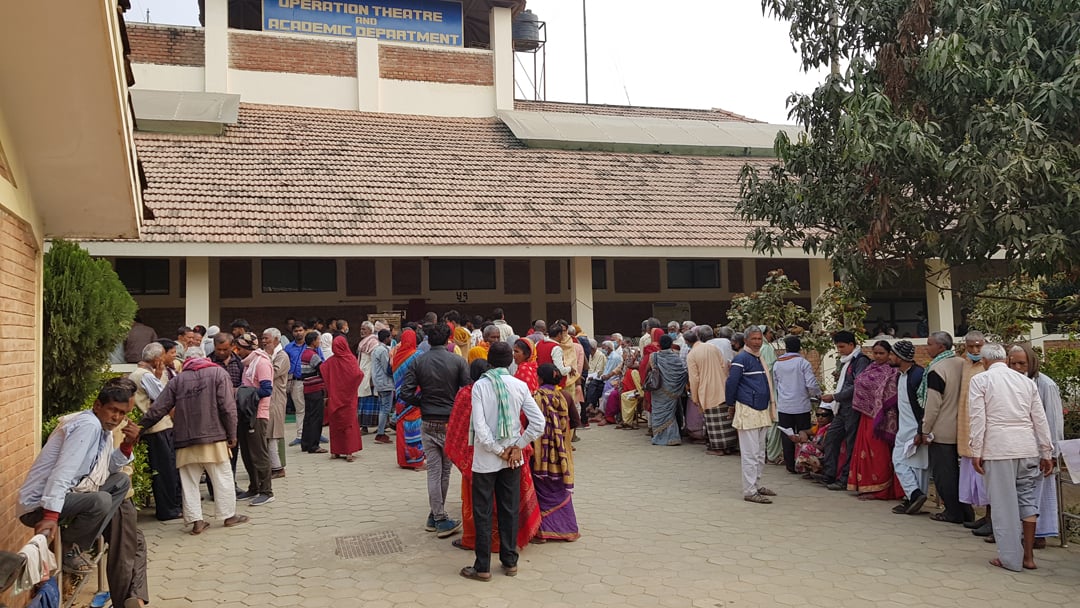 Patients outside operating theatre, waiting for surgery at Lahan Eye Hospital
Patients outside operating theatre, waiting for surgery at Lahan Eye Hospital
Shifting the power towards more equitable partnerships is fundamental
As CBM UK, along with CBM Global, explores power shift along with our Localisation Steering Group, we are starting a new pilot programme, Actions for Change. This distinctive three-year programme will work in four countries, including Nepal, in partnership with organisations of people with disabilities (OPDs). Each partner OPD had free rein to identify the needs within their own community and design interventions to meet them with CBM’s support. By working towards more balanced and equitable partnerships, without restrictions from donors, we believe we can achieve a greater impact for people in disabilities.
During my trip, I was able to visit our Actions for Change partner, the Blind Youth Association Nepal (BYAN), an organisation of blind and visually impaired youth. Their work includes education, employment, disaster risk reduction, health, and Sexual and Reproductive Health Rights (SRHR) of people with disabilities.
The distinctive approach of Actions for Change was really highlighted and celebrated by BYAN colleagues. In contrast to a donor-led approach to project design, colleagues commended the programme for “recognising and respecting people’s voices” and enabling project design to be “based on real gaps and issues”.
The project itself is in the early stages of delivery but – with a network across Nepal – BYAN are already talking about their own intention to shift power away from the central organisation into their provincial chapters. It will be exciting to see how this process evolves over the next three years, and what we are able to learn from it for shifting power in line with CBM’s partnership principles.
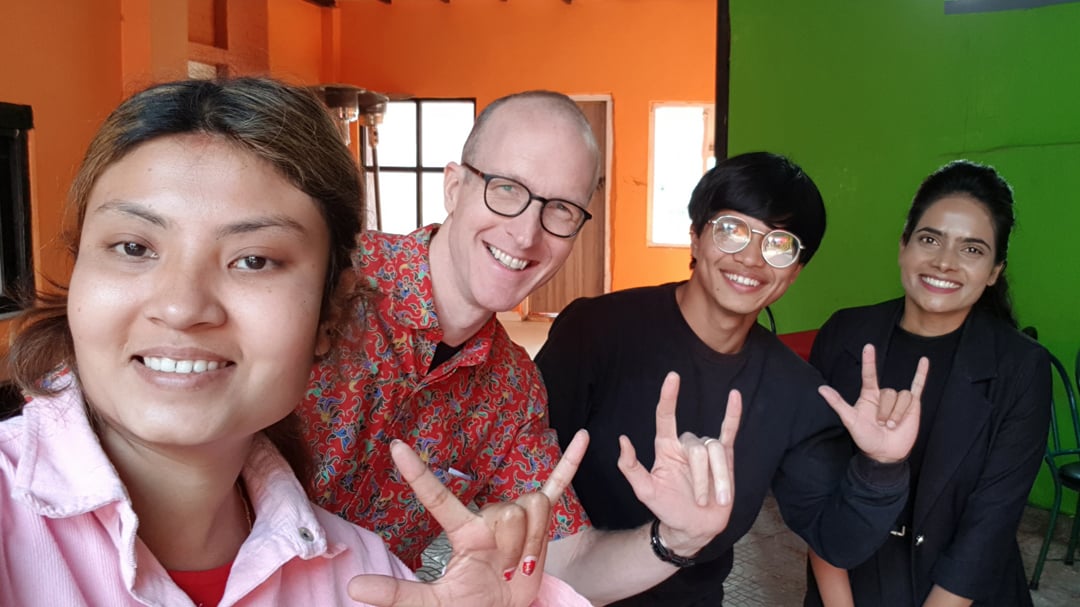 Matthew with colleagues from BYAN
Matthew with colleagues from BYAN
Integration of Disability Inclusion within local government programmes can work
Finally, I visited a rural municipality in western Nepal to connect with another of our long-term partners, Disable Empowerment and Communication Nepal (DEC-N), a community based organisation run by and for people with disabilities.
It was hugely encouraging to see how committed the local government is to disability inclusion – and how much DEC-N is able to contribute to these intentions. With DEC-N’s support, and in line with their ten-year strategy to improve disability inclusion, the local government is embedding disability inclusion practices across the region. One example of this is offering digital identity cards to people with disabilities to ease their ability to access local services, for example education and healthcare facilities.
This collaboration between DEC-N and the local government will enable better coordination and outcomes for the local network of OPDs. This is really important for ensuring that lots of perspectives from across the disability movement are heard and included in local action, including groups which can at times be excluded even from the disability movement, like deaf people or those with intellectual impairments. It will also make it easier for OPDs to advocate for improved services for people with disabilities, which is enormously important.
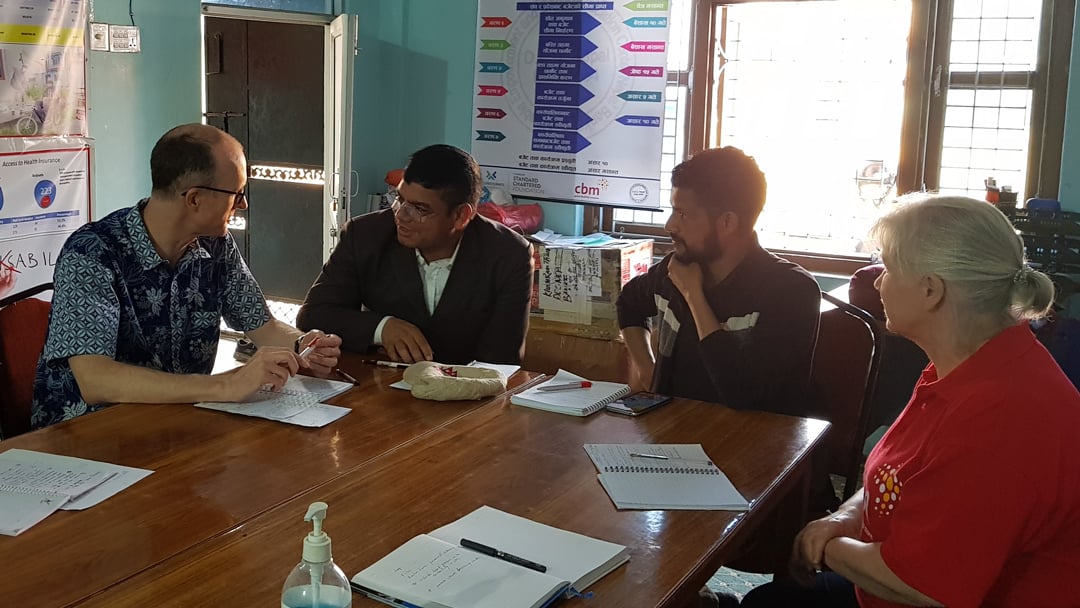 Meeting with staff in DEC-N office
Meeting with staff in DEC-N office
Traveling in Nepal, connecting with these partners and visiting a range of inspiring programmes was both refreshing and thought-provoking for me. As I reflect on the very real and often stark challenges which exist for many people with disabilities in Nepal and beyond, I know that creative and innovative solutions will continue to emerge from within the disability movement. It’s an honour to be playing a small part in that journey.
Find out more:
Nepal Netra Jyoti Sangh website [opens in new tab]
Power Shift Journey: Working with a Localisation Steering Group [opens in new tab]
Disable Empowerment and Communication Nepal (DEC-N) website [opens in new tab]
Main image; Group photo with BYAN and OPD network

